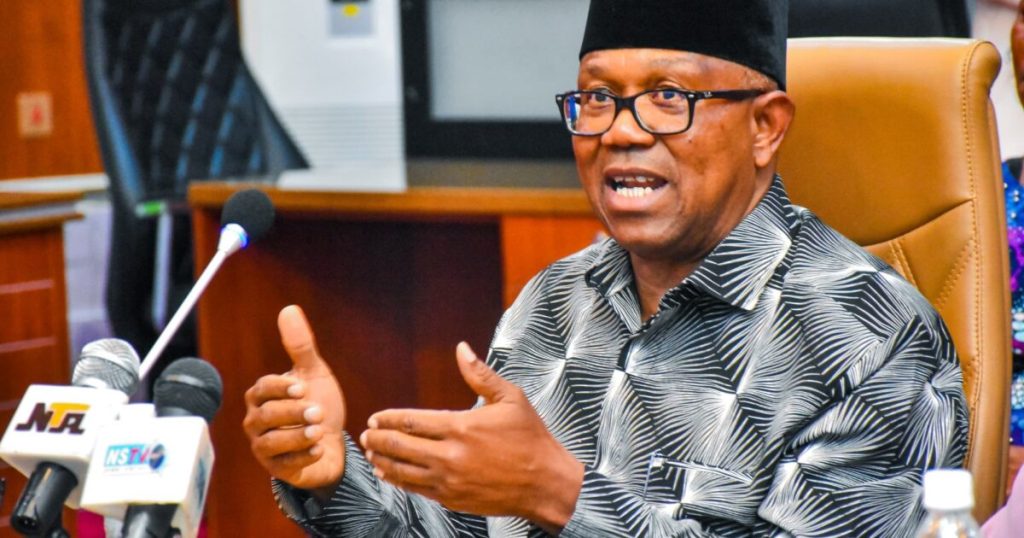The protracted strike by public primary school teachers in the Federal Capital Territory (FCT), Abuja, has sparked serious concerns from various quarters, including former Labour Party presidential candidate, Peter Obi. For over three months, this industrial action has kept pupils out of the classrooms, disrupting their education and raising anxieties about the future of these young learners. Obi, in a statement, characterized education as the bedrock of human development, inextricably linked to a nation’s overall progress. He emphasized that a well-educated populace is a key driver of national development, making investment in education not just a desirable option, but a fundamental necessity for any nation aspiring to progress. He argued that Nigeria’s commitment to international development goals like the Millennium Development Goals (MDGs) and Sustainable Development Goals (SDGs), coupled with the existence of the Universal Basic Education (UBE) law, underscores the nation’s recognition of education’s crucial role.
Obi’s concern stems from the realization that despite these frameworks and pronouncements, the reality on the ground paints a starkly different picture. The prolonged strike in Abuja, the nation’s capital, serves as a glaring example of the disconnect between policy and implementation. He expressed disappointment that what was initially perceived as a short-term disruption has morphed into a protracted crisis, leaving children idle at home for an extended period. Simultaneously, he pointed out the irony of prioritizing infrastructural renovations while neglecting the very foundation of societal development – education. He argued that while physical infrastructure is important, it pales in comparison to the significance of investing in human capital, particularly in the education of the next generation. Building a robust and prosperous nation, he asserted, begins with nurturing its human resources through quality education.
The former presidential candidate drew a direct correlation between the neglect of education and the perpetuation of societal ills such as poverty, insecurity, and underdevelopment. He warned that failing to prioritize children’s education is tantamount to condemning them to a cycle of disadvantage, thereby hindering their potential and ultimately impeding national progress. He called for a paradigm shift, urging a renewed focus on human capital development as the cornerstone of nation-building. This, he argued, necessitates prioritizing investments in crucial sectors such as basic education, healthcare, and poverty alleviation. These investments, according to Obi, are not merely expenditures but strategic investments in a nation’s future, paving the way for the realization of a “New Nigeria.”
Obi’s critique goes beyond simply lamenting the current state of affairs. He offers a clear and concise roadmap for achieving sustainable development, placing human capital development at the heart of this transformative agenda. His emphasis on basic education, healthcare, and poverty reduction highlights the interconnectedness of these critical areas. Investing in education empowers individuals with the knowledge and skills necessary to contribute meaningfully to the economy, breaking the cycle of poverty and fostering a more secure and stable society. Similarly, access to quality healthcare ensures a healthy and productive workforce, further contributing to economic growth and national development. By addressing these fundamental issues, Obi argues, Nigeria can unlock its vast human potential and pave the way for a brighter future.
The prolonged strike in Abuja serves as a microcosm of the broader challenges facing Nigeria’s education system. It underscores the need for effective policy implementation, adequate funding, and a genuine commitment to prioritizing education at all levels. The disruption caused by this strike not only affects the academic progress of the pupils but also has wider societal implications. The loss of learning time can have long-term consequences, potentially hindering the students’ ability to reach their full potential. Furthermore, the prolonged absence from school can expose children to various risks, including child labour, exploitation, and recruitment into criminal activities. Addressing these challenges requires a multi-faceted approach involving government, educators, parents, and the wider community.
In conclusion, Peter Obi’s call for prioritizing human capital development, particularly through investment in education, is a timely and crucial message. The ongoing strike in Abuja serves as a stark reminder of the consequences of neglecting this vital sector. Building a prosperous and secure nation requires a concerted effort to empower its citizens through quality education, healthcare, and opportunities for economic advancement. Investing in these areas is not merely a social responsibility but a strategic imperative for achieving sustainable development and building a brighter future for all Nigerians. The “New Nigeria” that Obi envisions can only be realized through a fundamental shift in priorities, placing human capital development at the forefront of national development strategies. This requires not just policy pronouncements but concrete actions, effective implementation, and sustained investment in the building blocks of a thriving society.


